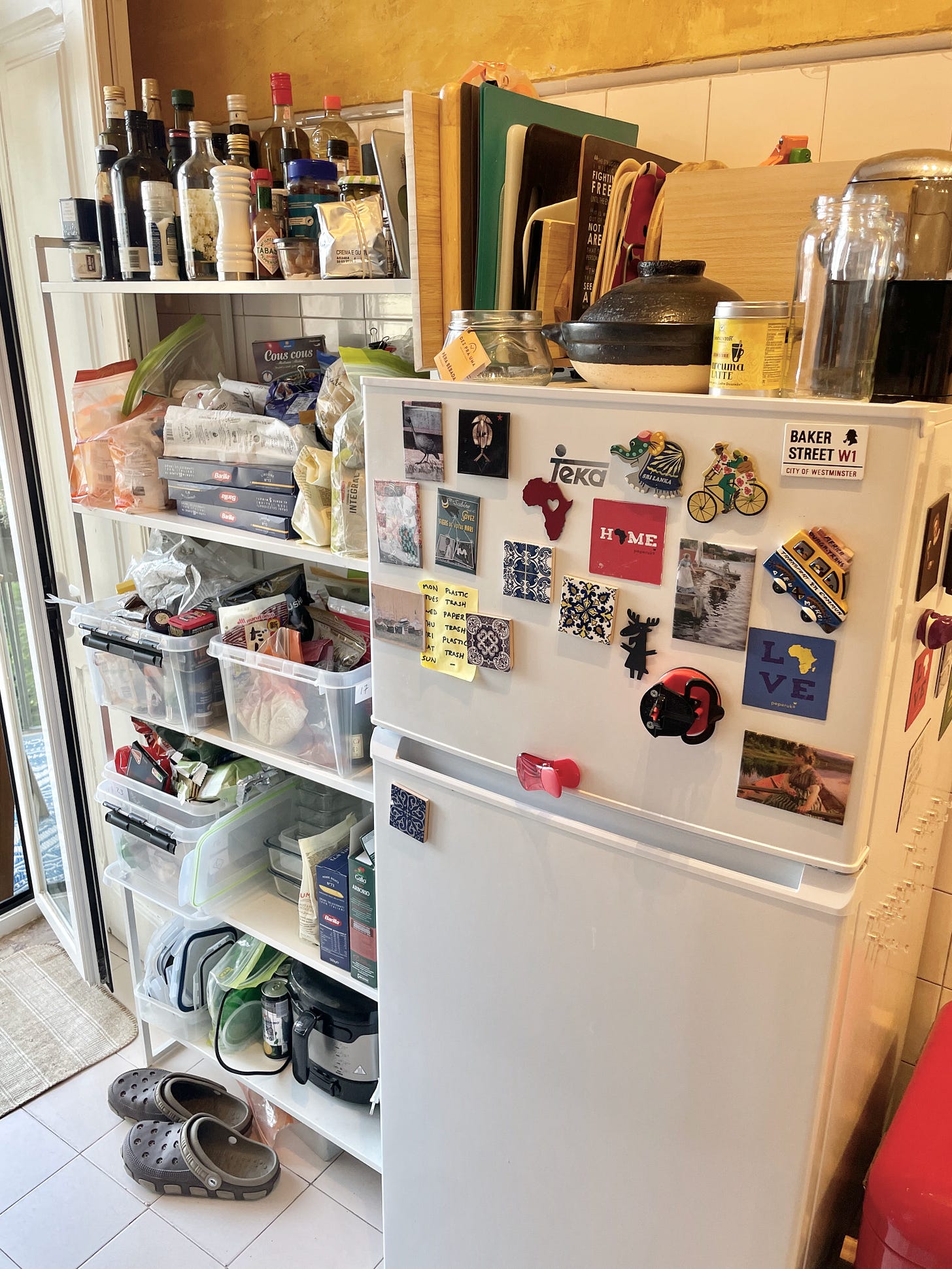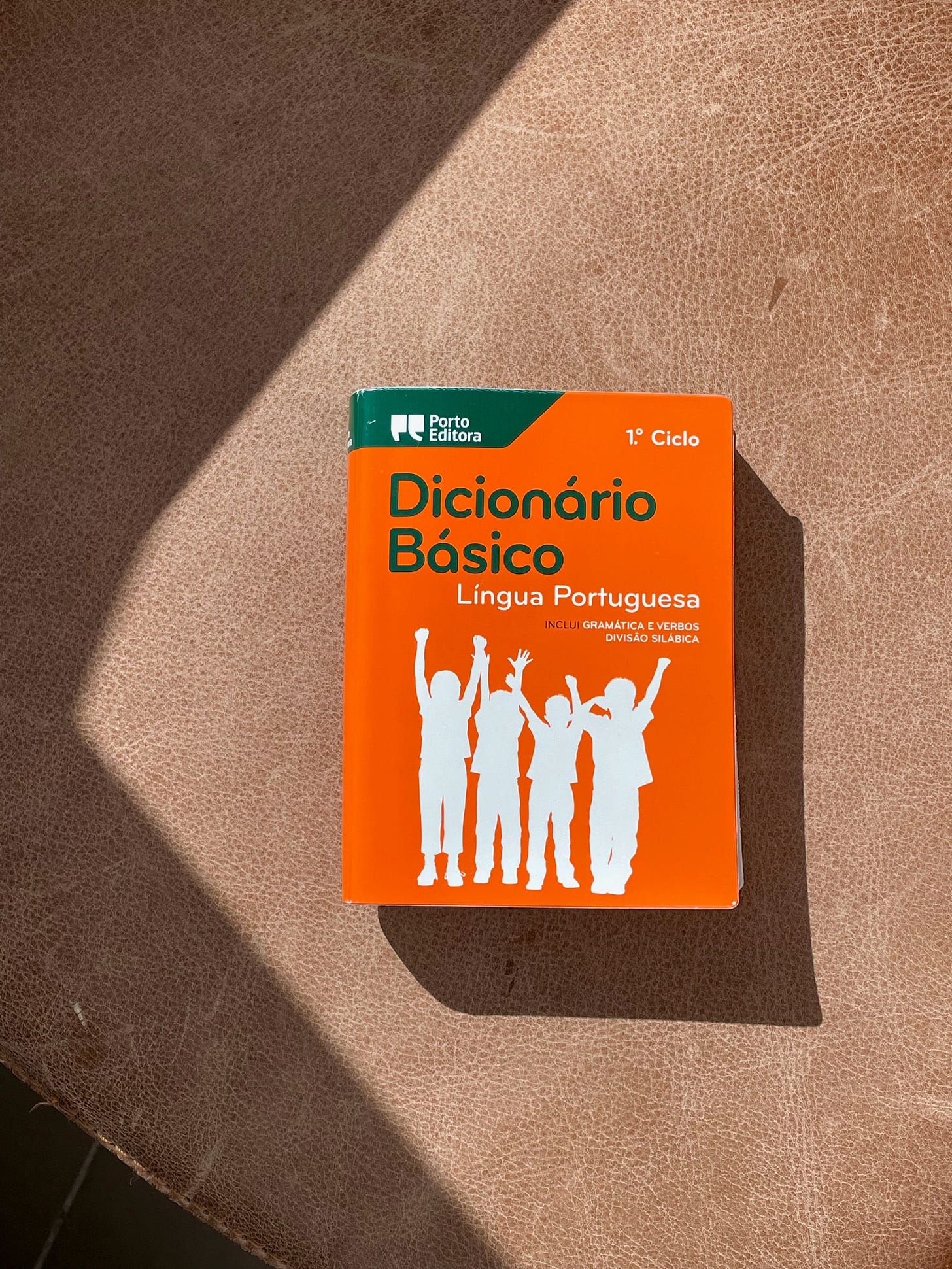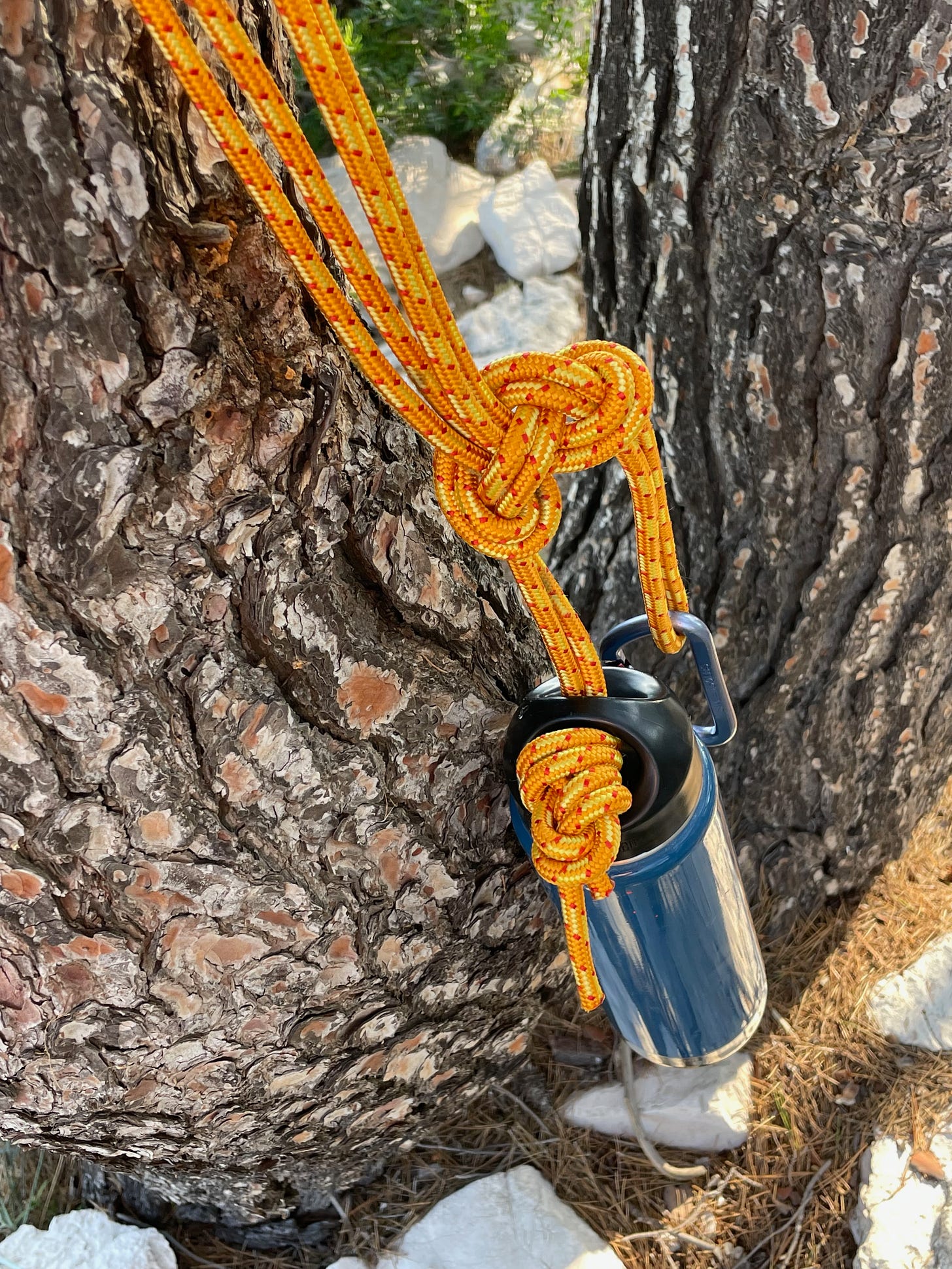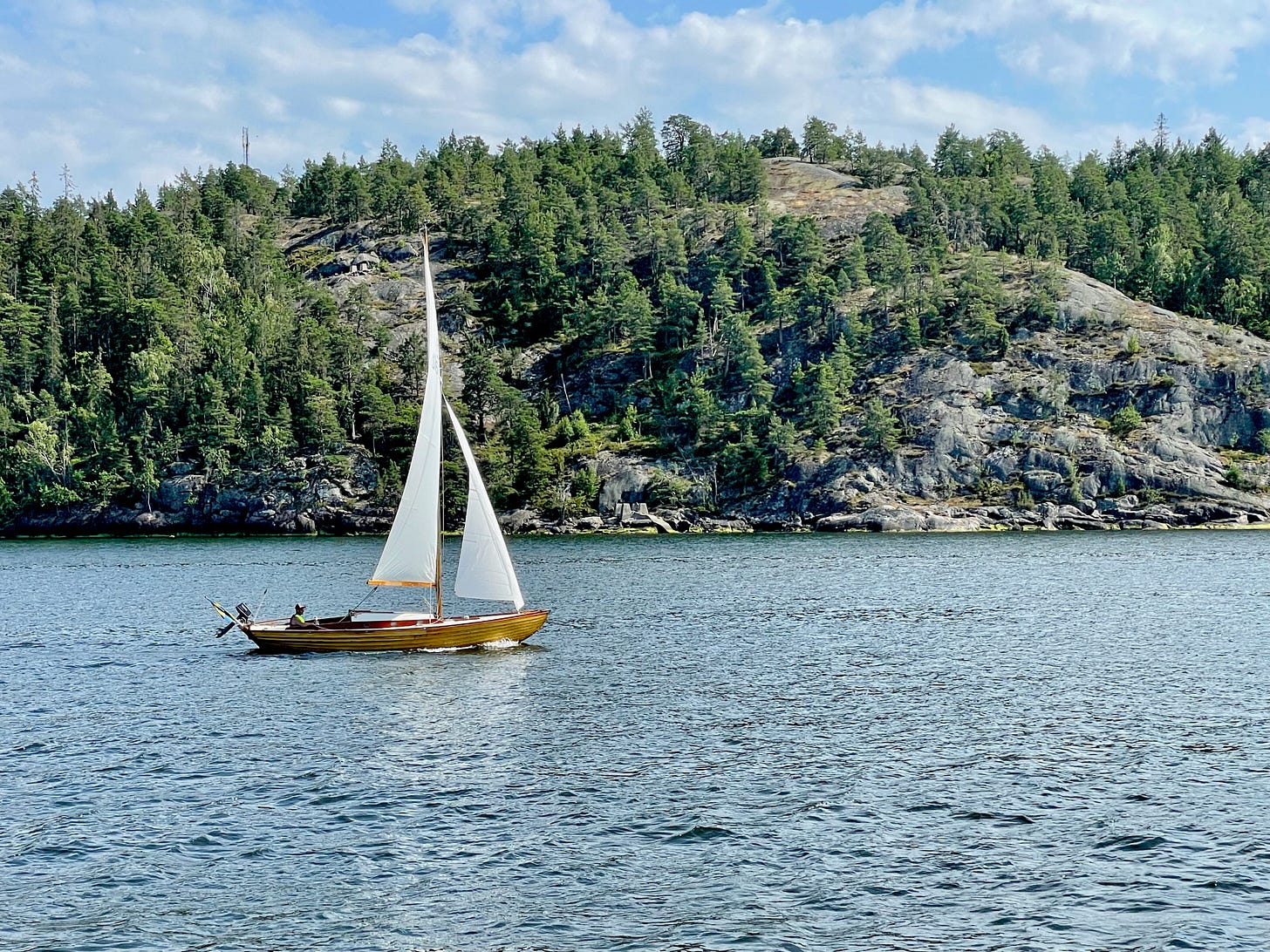Teeth and tongues
I went to the dentist last week for the first time in a couple of years—since before Liza and I started our year of crazy travel around Europe. In fact, it’s now been exactly two years since we started our travels, and exactly one year since we chose Lisbon as our new home. But let’s get back to the dentist.
Few people, I suspect, look forward to going to a new dentist, in a new country, in a new language. (I actually suspect this pretty strongly.) But a chipped tooth convinced me that it was time to take the plunge, so I called my insurance company and got help making an appointment.
The dentist was a lovely, amicable woman in a sleek office full of gleaming equipment with soft contours. She noted down the things that I told her about how long I had been in Portugal and how long my tooth had been hurting. And then she said, “I have to ask you a question about something completely unrelated.” I nodded, and she continued: “Did you really learn all this Portuguese in one year?”
I laughed, and told her that no, in fact I had lived in Portugal for a couple of years during the 1990s, and I had learned Portuguese pretty well then. And of course it’s been improving over the past year. She complimented me, saying that my command of the language was really excellent. I then told her that I am also a linguist, which usually puts people at ease, since folks seem to think that getting a degree in linguistics grants you the ability to learn languages instantly. (Hey, linguist friends, how’s that going for you?)
The tooth was epoxied, and I paid my bill to the receptionist, who also complimented my Portuguese. Skipping ahead to this morning, I went to the cultural center for my new parish to apply for a resident’s discount card, and I went through roughly the same scene all over again, having to explain why I, a guy who looks too tall to speak Portuguese, is so startlingly fluent in the language. The woman there laughed nervously and was very complimentary.
In fact, this happens all the time. And of course I don’t mind. The compliments are nice, but my main reaction is to feel gratitude: gratitude to my twenty-something self, who made a herculean effort to learn this mumbly language spoken in a neglected corner of Europe. When I left Lisbon back in the mid-1990s, I thought I would never return and would never use my Portuguese again. And indeed, I went without visiting for many years, and as a consequence my Portuguese went fallow. It was slowly covered over with clover and lupins and mustard as I frolicked around Europe, learning German, French, Italian, and Swedish. By the time I started returning to Lisbon on holiday twenty years later, I had to machete my way through tangled scrub to get back to my Portuguese. But you know what? Eventually, it worked. The initial investment paid off, and once tilled, the field blossomed marvelously.
Investing in an unknown future
Thinking about experiences like this leads me to a realization: We make all sorts of investments over the course of our lives, without knowing for sure what sort of return we will reap. Not only is this OK, it is ideal. We cannot predict the future, so the best thing we can do is to dedicate our time, attention, and resources to things that we are interested in now, whether or not they will prove useful later.
But here’s the thing: They may well prove useful later. You never know what skills you will be able to use again later in life in a different context. I am coming to see my life—and every other individual’s—as a story with several leitmotifs. Although we may go through various stages with apparent ruptures between them (and I have had several of these), certain things will remain true of us, and certain motifs will disappear and then resurface. This is part of what makes a life a work of art.
Let me give some examples. I have already mentioned that I learned Portuguese, and then dug it up again years later. But before that, I had learned Spanish, and it was my knowledge of that language (after years of dedicated study) that allowed me to become fluent in Portuguese in just two years. And then Portuguese, in turn, helped me to learn French and Italian. Similarly, the two years I spent studying German at the Volkshochschule in Berlin paid off not only in allowing me to navigate life in Germany, but also when I later married a Swede and started to learn her language, which is rather closely related. And then there’s the fact, despite what I implied earlier, that the more languages you know (and the more you know about languages), the easier it is to learn new ones. So being a linguist does give you a bit of a leg up.
But forget languages—let’s talk about physical activities. I learned to ride a bicycle when I was six, and I learned to ski cross-country when I was eighteen. Little did I suspect then that I would one day live in Sweden, where both of these activities are incredibly common among the adult population. I also learned to drive a car at sixteen, and that has enabled me to do thousands of things that my European friends without a driver’s license cannot do—not least, the 40,000 kilometers of driving around Europe that Liza and I did last year.
I find that intellectual pursuits, too, can serve as investments that stand me in good stead years later. I recently had occasion to solve an algebra problem in the course of daily life. And all of the time that I spent taking statistics classes has helped me to understand the world much better over the years. I learned computer programming when I was a graduate student, and that not only helped me in my later career but now allows me to build websites on the side of my other projects. (And of course, it also helped make the Random Travel Club a reality.)
Cyclical rather than cynical
Because time inexorably pulls me closer and closer to looking like Elvis Costello without ever giving me his talent, I realize it’s wise to make use of the few talents I do have in good time. I learned to sail when I was young, and it has long been a dream of mine to have a sailboat (even though people tell me it’s preferable to have friends with a sailboat). The fact that I have the basic skills means that I could be up and running as a sailor in short order, should the opportunity present itself, or should I take the leap and buy that boat. Also, an interesting side-effect of learning to sail is that I developed a fascination with knots, which has actually proved useful countless times over the years.
Sadly, there are several other investments I have made that have not yet paid off, such as learning to play the guitar, which I have only ever done badly. But now that I live in the sort of country where people actually will sit around with a bottle of wine and a guitar, I may pick it up again. I see this as a form of “life recycling”—taking discarded skills, wiping them down, and putting them to some new use. Surely having such an optimistic attitude is preferable to feeling like I wasted all the time I put into learning the guitar without ever gaining a groupie.
And then there will always be things that we wish we had invested time in. Believe it or not, I have never ridden a motorcycle, or even a moped. I have no idea how to do so. This means that I am unlikely ever to use the electric mopeds that one can rent by the hour around Lisbon, and I will probably never match my fantasy picture of myself on an old-style Vespa, putting down cobbled streets with a baguette and a bunch of flowers. (Yes, I know, it’s embarrassing, but don’t we all have these?)
Another example of the things I really wish I had invested in is a solid understanding of finances. It is tempting to claim that I am a lofty artistic type whose eyes glaze over when people start using prosaic words like “amortize,” “portfolio,” and “annuity.” But the fact is that I simply never really understood this stuff, and didn’t make the effort required to become a wise manager of my own finances. My life would surely be better if I had. Maybe I’ll stick a subscribe button right here.
Life is like a refrigerator
So here is the metaphor (or analogy, for the purists out there) that I would like to propose: Any time you start a new chapter in life, figuring out what to do is like looking in the refrigerator and seeing what leftovers and ingredients you have. I have (thankfully, especially now that I’m single again) spent enough time developing my cooking skills that I can look in my fridge, see some chicken breasts, some okra, and some garlic, and pull out the basmati rice, corn meal, and gochujang sauce, whipping up a meal that I would even serve to a friend (assuming that they were not vegetarian, sensitive to spice, or icky about okra).
And it’s the same with life. When we are trying to find our footing in a new stage—after moving to a new country, watching the kids leave home, going through a divorce, etc.—it is helpful to look in the refrigerator of our life and see what leitmotif-ingredients we have to work with. Maybe you used to enjoy birdwatching but gave it up after leaving Michigan; could you start again now? Perhaps you used to love carpentry, and now you have an empty garage. Maybe it’s time to dust off that high school French and plan a trip to Paris. What if you could get back into yoga to the point that you could become an instructor? The possibilities are not endless, but here’s the thing: we do not need endless possibilities. That is simply tiring. What we need is a few good options from which to choose, and most of us have those already.
I believe that the more we see leitmotifs resurface in our lives, as in art, the more beautiful our lives become. To know that you can still do—and still enjoy—the same things you used to do helps to build a sense of identity and grant a deeper satisfaction with your life, despite all of its warp and wonkiness.
I’m thinking maybe I’ll even take up knitting again—one of my most colossally failed pursuits ever. I like to say that I have a scarf that I’ve been working on for twenty-five years. Who knows, maybe it will return in time for winter.













My refrigerator is rather sparsely populated. Milk, cheese, beer, assorted condiments—but no okra, and nary a leitmotif in sight. So the analogy troubles me a bit. But I love the basic idea here!
Lovely post. And I think there is still time to learn how to ride a vespa. Just make sure you wear a helmet. One head injury would be enough to wipe out all that intellectual investment you made.